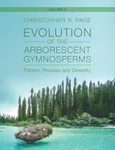![Evolutionary Biology Evolutionary Biology]()
Click to have a closer look
About this book
Customer reviews
Biography
Related titles
About this book
This book is reflecting upon core theories in evolutionary biology – in a historical as well as contemporary context. It exposes the main areas of interest for discussion, but more importantly, draws together hypotheses and future research directions.
The Modern Synthesis (MS), sometimes referred to as Standard Evolutionary Theory (SET), in evolutionary biology, has been well documented and discussed but was also critically scrutinized over the last decade. Researchers from diverse disciplinary backgrounds have claimed that there is a need for an extension to that theory, and have called for an Extended Evolutionary Synthesis (EES).
The book starts with an introductory chapter that summarizes the main points of the EES claim and indicates where those points receive treatment later in the book. This introduction to the subjects can either serve as an initiation for readers new to the debate or as a guide for those looking to pursue particular lines of enquiry.
The following chapters are organized around historical perspectives, theoretical and philosophical approaches and the use of specific biological models to inspect core ideas. Both empirical and theoretical contributions have been included. The majority of chapters are addressing various aspects of the EES position, and reflecting upon the MS. Some of the chapters take historical perspectives, analyzing various details of the MS and EES claims. Others offer theoretical and philosophical analyses of the debate or take contemporary findings in biology and discuss those findings and their possible theoretical interpretations. All of the chapters draw upon actual biology to make their points.
This book is written by practising biologists and behavioural biologists, historians and philosophers – many of them working in interdisciplinary fields. It is a valuable resource for historians and philosophers of biology as well as for biologists.
Customer Reviews
Biography
Thomas E. Dickins is a professor of behavioural science at Middlesex University. He has a background in psychology, history and philosophy of science, evolutionary psychology and ecology. His interests fall within behavioural biology and include work on theoretical aspects of evolutionary theory and its application. Most recently this has included addressing current calls for an Extended Evolutionary Synthesis and developing arguments in support a version of the Modern Synthesis in evolutionary biology. Aside from theoretical work, Tom is pursuing a long-term study of Kittiwakes (Rissa tridactyla) at a number of field sites in the south of England as well as various studies on human behaviour.
Benjamin J.A. Dickins is a senior lecturer at Nottingham Trent University. Ben is interested in genome evolution and in the process of adaptation. He has used a range of sequencing and bioinformatic approaches to address problems with bacteriophages and dinoflagellates as contrasting model systems in his laboratory. His doctoral training (at the Babraham Institute, UK) provided a detailed knowledge of molecular biology/genetics in the context of understanding the physiological consequences of genomic imprinting. His postdoctoral experience (at Penn State University, US) familiarised him with (next-generation) sequencing workflows and computer programming as he participated in work on the mutation rate of human mitochondrial DNA and evolutionary dynamics in a phage.




































